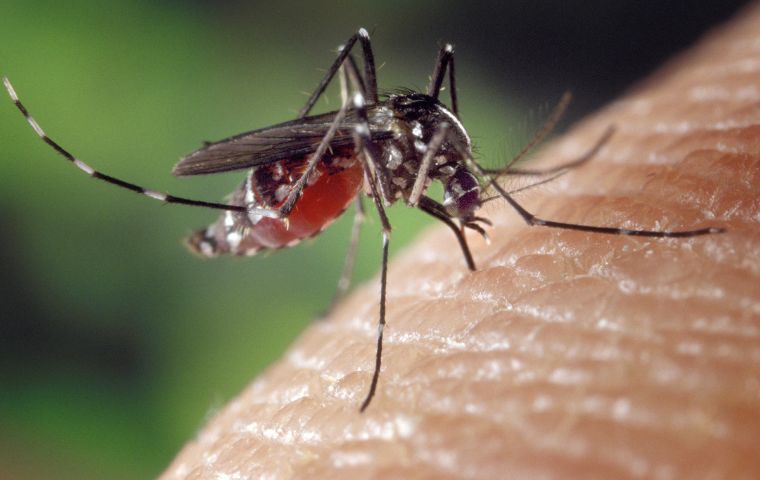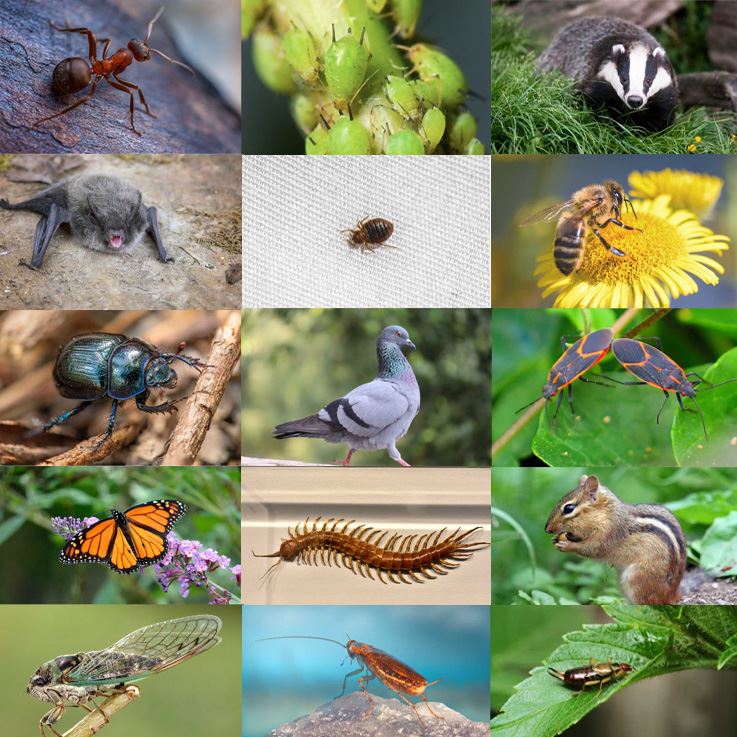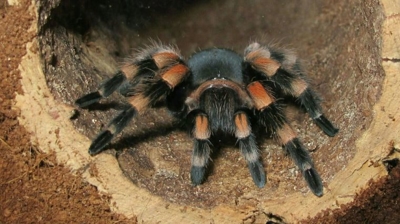
Asian Tiger Mosquitoes
What Are Asian Tiger Mosquitoes?
Asian tiger mosquitoes (Aedes albopictus) are an aggressive, invasive mosquito species known for their black and white striped body and legs, which give them their name. Originally from Southeast Asia, they have spread globally, including to the United States, due to their adaptability and ability to breed in small containers of water.
Are Asian Tiger Mosquitoes Harmful?
Asian tiger mosquitoes (Aedes albopictus) are considered harmful for several reasons, primarily due to their role as disease vectors, their aggressive biting behavior, and their adaptability to human environments. Here are the main ways they pose a threat:
Disease Transmission
- Asian tiger mosquitoes are capable of spreading several dangerous viruses, including:
- Dengue Fever – Causes high fever, severe body aches, and in some cases, life-threatening complications.
- Chikungunya Virus – Leads to debilitating joint pain and fever.
- Zika Virus – Can cause birth defects (such as microcephaly) in babies when transmitted to pregnant women.
- West Nile Virus – Can lead to neurological complications, including meningitis and encephalitis.
- Yellow Fever – In regions where the virus is present, they can be a secondary vector.
Aggressive Biting Behavior
Unlike many mosquito species that bite primarily at night, Asian tiger mosquitoes are daytime biters, making them more disruptive to outdoor activities. Their bites are often more painful than other mosquitoes and can cause itchy, inflamed reactions.
Rapid Spread & High Adaptability
- Thrives in urban and suburban areas: They breed in small containers of water commonly found around homes, such as flowerpots, gutters, and discarded tires.
- Difficult to control: Their eggs can survive desiccation (dry conditions) for months, making eradication challenging.
- Expanding range: They have spread globally due to their adaptability to different climates and human travel patterns.
Economic & Environmental Impact
- Increases healthcare costs: Outbreaks of mosquito-borne illnesses require significant medical resources.
- Hurts tourism & outdoor activities: High mosquito populations can deter outdoor recreation and travel.
- Affects ecosystems: Their presence disrupts local ecosystems by outcompeting native mosquito species and becoming a nuisance for wildlife.
Psychological and Quality of Life Issues
Constant mosquito bites can lead to stress, anxiety, and reduced outdoor enjoyment.
Some individuals develop skeeter syndrome, an allergic reaction causing severe swelling, blistering, and discomfort from bites.
Asian tiger mosquitoes are a significant public health concern due to their ability to spread diseases, their aggressive nature, and their rapid adaptability. Effective mosquito control measures, including eliminating breeding sites and using repellents, are essential to mitigating their impact.
Asian Tiger Mosquito Appearance
Asian tiger mosquitoes (Aedes albopictus) have a distinctive appearance that makes them relatively easy to identify. Here are some of their physical characteristics:
- Size & Shape: Small to medium-sized mosquito, about 1/4 inch (6 mm) in length. Slender body with long legs, similar to other mosquito species.
- Color & Markings: Primarily black with white scales decorating its body. A single white stripe runs down the center of its thorax (back), which is a key distinguishing feature. Black and white striped legs, giving it a “tiger-like” appearance.
- Wings: Dark-colored wings with no scales or patterns.
Asian Tiger Mosquito Habitat
Asian tiger mosquitoes (Aedes albopictus) are found in a wide range of environments, but you are most likely to encounter them in warm, humid regions with standing water. They are especially common in urban and suburban areas, where they take advantage of small, artificial water containers for breeding.
Most Common Locations to Encounter Asian Tiger Mosquitoes
Around Homes & Neighborhoods
- Backyards & Gardens – Flowerpots, birdbaths, clogged gutters, pet water bowls, and other water-holding containers.
- Tires & Trash – Old tires, discarded containers, and trash that can collect rainwater.
- Drainage Areas – Puddles, storm drains, and poorly drained areas around buildings.
- Shaded Areas – They prefer cool, shady spots during the heat of the day, such as under decks, porches, and dense vegetation.
Public & Urban Areas
- Parks & Playgrounds – Areas with trees, bushes, and water sources like fountains or puddles.
- Cemeteries – Vases and flowerpots that hold stagnant water are prime breeding sites.
- Construction Sites – Unused materials, tarps, and open containers that collect rainwater.
- Public Transport Areas – Bus stops, train stations, and other places where standing water can accumulate.
Natural & Rural Environments
- Forests & Wooded Areas – Especially near trails, picnic areas, and bodies of water.
- Marshes & Swamps – Though they prefer small, contained water sources, they can still thrive near stagnant water.
- Farms & Agricultural Areas – Livestock water troughs and irrigation ditches can serve as breeding sites.
High-Risk Seasons & Times
- Summer & Early Fall – Peak season for their activity in temperate regions.
- After Rainfall – They take advantage of new water collections to lay eggs.
- Dawn & Dusk – While they are aggressive daytime biters, they are most active in the early morning and late afternoon.
If you are in an area with a warm climate, abundant vegetation, and human-made water sources, you are highly likely to encounter Asian tiger mosquitoes. The best way to reduce their presence is by eliminating standing water and using repellents when outdoors.
Asian Tiger Mosquito Diet
Asian tiger mosquitoes (Aedes albopictus) have a diet that varies depending on their life stage and gender.
Larvae (Aquatic Stage)
- Diet: Mosquito larvae are filter feeders, consuming organic matter, algae, bacteria, and microorganisms found in stagnant water.
- Purpose: This diet helps them grow and develop before they become adult mosquitoes.
Adult Asian Tiger Mosquitoes
Males:
- Diet: Male Asian tiger mosquitoes feed exclusively on plant nectar, fruit juices, and other natural sugars.
- Purpose: The sugars provide energy for survival and mating.
Females:
- Diet: Female Asian tiger mosquitoes have a dual diet:
- Plant Nectar & Sugars – For basic energy needs, just like males.
- Blood Meals – Required for egg production. They bite humans, pets, and wild animals to obtain the proteins and iron necessary for developing eggs.
What Do Female Asian Tiger Mosquitoes Bite?
- Humans – They are aggressive human biters, preferring exposed skin.
- Mammals – Dogs, cats, livestock, and wildlife like deer and rodents.
- Birds & Reptiles – Less commonly, they may also bite birds, amphibians, and reptiles if no other hosts are available.
Since only female mosquitoes bite and require blood meals for reproduction, reducing breeding sites and using repellents can help minimize their impact.

Asian Tiger Mosquito Life Cycle
The life cycle of Asian tiger mosquitoes (Aedes albopictus) consists of four stages: egg, larva, pupa, and adult. The entire cycle can be completed in 7 to 14 days, depending on temperature and environmental conditions.
1. Egg Stage
- Female mosquitoes lay eggs just above the waterline in small, stagnant water sources like flowerpots, birdbaths, tires, and containers.
- Eggs can survive for months in dry conditions, waiting for water to submerge them before hatching.
- A single female can lay 100 to 200 eggs at a time.
2. Larva Stage (Hatching & Growth) (4-10 days)
- When submerged in water, eggs hatch into larvae (wrigglers) within 1-2 days.
- Larvae live entirely in water, feeding on microorganisms, algae, and organic matter.
- They go through four molts (instars), growing larger each time.
- They must come to the surface to breathe through a specialized tube (siphon).
3. Pupa Stage (Transformation to Adult) (1-3 days)
- After the larval stage, the mosquito becomes a pupa (tumbler), a non-feeding stage.
- It remains in the water but starts developing into an adult mosquito.
- Within a few days, the adult mosquito emerges from the pupa and rests on the water’s surface before flying away.
4. Adult Stage (Flying & Feeding)
- Once fully developed, adult mosquitoes are ready to feed and reproduce.
- Males feed on plant nectar for energy and mate with females.
- Females feed on nectar but also require a blood meal to lay eggs.
- The female lays eggs after feeding, restarting the cycle.
How Long Do Asian Tiger Mosquitoes Live?
- Males live about 10 days, dying shortly after mating.
- Females live up to a month, laying multiple batches of eggs in their lifetime.
Key Factors Affecting Their Life Cycle
- Temperature & Humidity: Warmer, humid conditions speed up development.
- Water Availability: Eggs need water to hatch; reducing standing water breaks the cycle.
- Predators & Environmental Changes: Natural predators (like fish and dragonflies) can limit their survival.
Because they reproduce so quickly and efficiently, controlling their breeding sites is the most effective way to reduce their population.

Hear From Our Happy Customers
-
"Wonderful Service"
Wonderful service. Jarvis is great. Took care of everything I needed. Thank you!
- Henry P. -
"Fantastic & Patient"
Jarvis was fantastic and patient. He answered my questions with an in-depth explanation and addressed all of my areas of concern. Would love for him to be my assigned tech going forward. Well done!
- Yonnette M. -
"Exceeds Expectations"
I can’t say enough positive things about this company... The tech that came out, Jarvis went above and beyond my expectations. Thank you guys, I will continue using your services.
- Jake M. -
"Very Knowledgeable"
The tech that arrived was courteous, professional, and very knowledgeable. He was Great.
- Uerial I. -
"Great Communication"
Tech was on time, communication was great, and he accommodated my needs.
- Alonzo W. -
"Professional & Considerate"
I’m pleased with Miche services. Jarvis came today. Professional and considerate. Thank you!
- Judy B.



